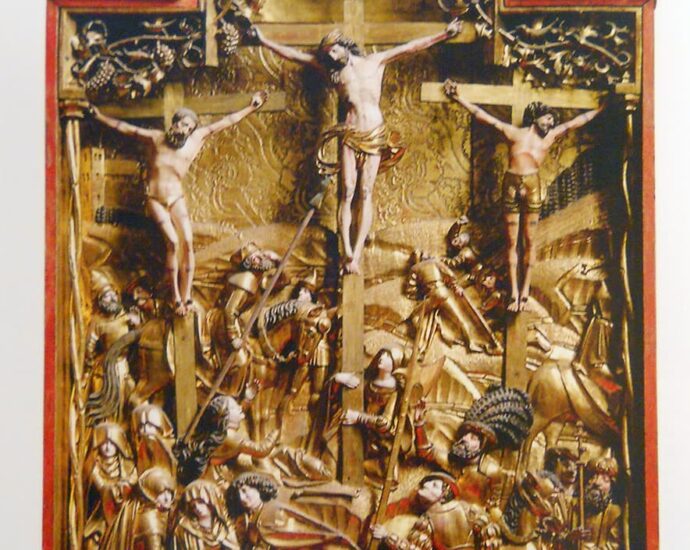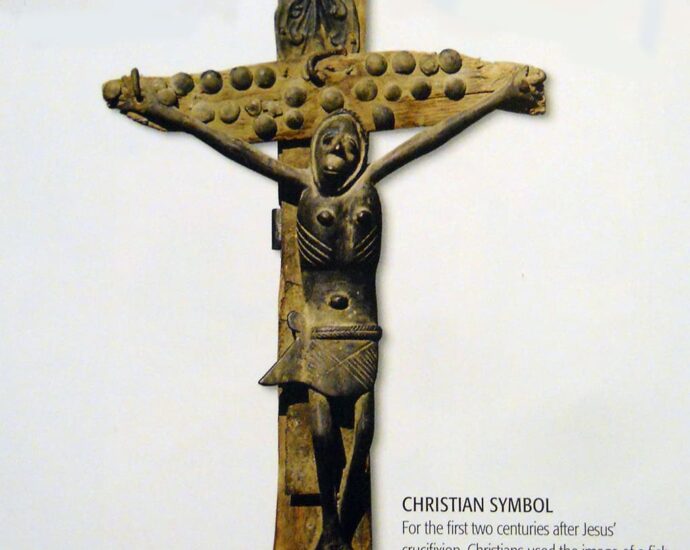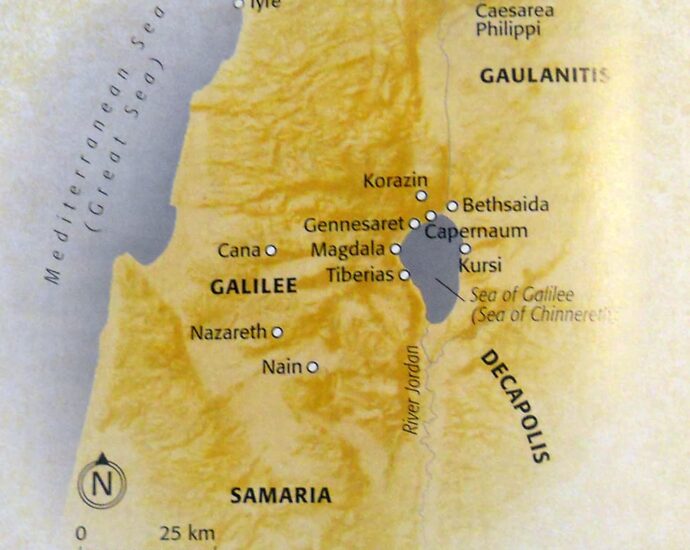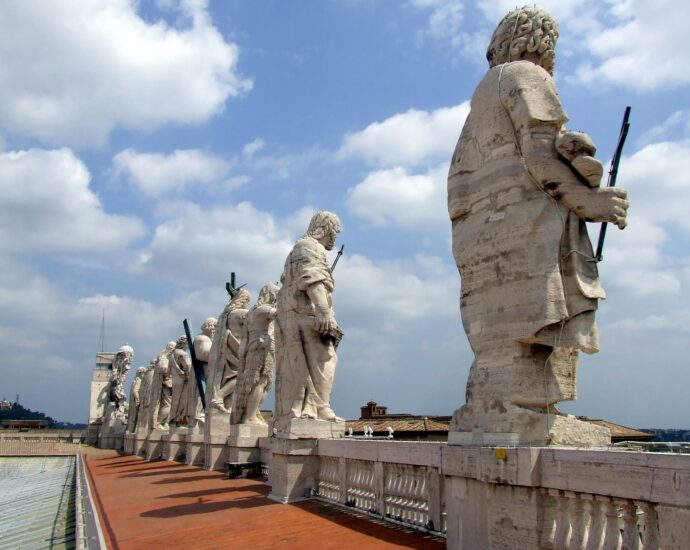Q97 Are the Jews guilty of Jesus’s death?
No one can assign collective guilt for the death of Jesus to the Jews. Instead, the Church professes with certainty that all sinners share in the guilt for Jesus’ death. [597-598] The aged prophet Simeon foresaw that Jesus would become ” a sign that is spoken against” (Lk 2:34b). AndContinue Reading
Q96 Why was a man of peace like Jesus condemned to death on a Cross?
Jesus posed a decisive question to his contemporaries: Either he was acting with divine authority, or else he was an imposter, a blasphemer, and a violator of the Law and who had to be called to account. [574-576] In many respects, Jesus was an unprecedented challenge to the traditional JudaismContinue Reading
Q95 Why did Jesus choose the date of the Jewish feast of Passover for his death and Resurrection?
Jesus chose the Passover feast of his people Israel as a symbol for what was to happen through his death and Resurrection. As the people Israel were freed from slavery to Egypt, so Christ free us from the slavery of sin and the power of death. [571-573] The Passover wasContinue Reading
Q94 Did Jesus know that he would die when he entered Jerusalem?
Yes. Three times Jesus had predicted his suffering and death before consciously and voluntarily (Lk 9:51) going to the place of his Passion and his resurrection.[557-560,569-570]Continue Reading
Q93 Why was Christ transfigured on the mountain?
The Father wanted to reveal the divine glory of his Son even during Jesus’ earthly life. Christ’s Transfiguration was meant to help the disciples later to understand his death and Resurrection. [554-556,568] Three Gospels related how Jesus, on the mountaintop, begins to shine(is “transfigured”) before the eyes of his disciples.Continue Reading
Where does the word saint come from, in its root meaning? To which other word is it related?
Saint means “holy person”. It comes from the Latin noun and adjective with masculine and feminine versions: sanctus/sancta. In Spanish, we know the masculine san (as in San Francisco) and the feminine santa (as in Santa Rosa). The Latin neuter sanctum means “holy thing”. The other languages derived largely fromContinue Reading
How many saints are there, and where do we look for the answer?
An exact number eludes us! It should, of course, because there are more saints than just the canonized and the beatified. The number of saints in heaven is known only to God. Beyond that, we have recourse to the Roman Martyrology, the official listing of not just martyrs but allContinue Reading
You say that other Christian churches’ use of the word saint may have affected Catholic usage. In Christianity beyond Catholicism, how is th eword used?
In the Protestant tradition, the word saints (ordinarily in this plural form) has typically referred to living believers in Christ – Church members, all the baptized – usually without any implication about their individual degree of virtue or holiness. This broad usage has roots in Saint Paul’s New Testament lettersContinue Reading
In Catholic usage, can the term saint also be applied to someone other than those enjoying heavenly glory with God?
Yes, it can. Unofficially and usually without much precision, Catholics and others might speak of a person as a saint or a living saint when describing someone with qualities best defined by the speaker. Usually, they mean someone still living who fits each speaker’s sense of a good, holy, virtuousContinue Reading
When Catholics speak of a “Saint”, what do they mean?
The word saint ordinarily means a deceased person who believed deeply in Jesus Christ as Lord and who lived a holy life while on earth, and as a result, dwells forever with God in heaven. The person is not necessarily famous. One who fits this description and is not publiclyContinue Reading










